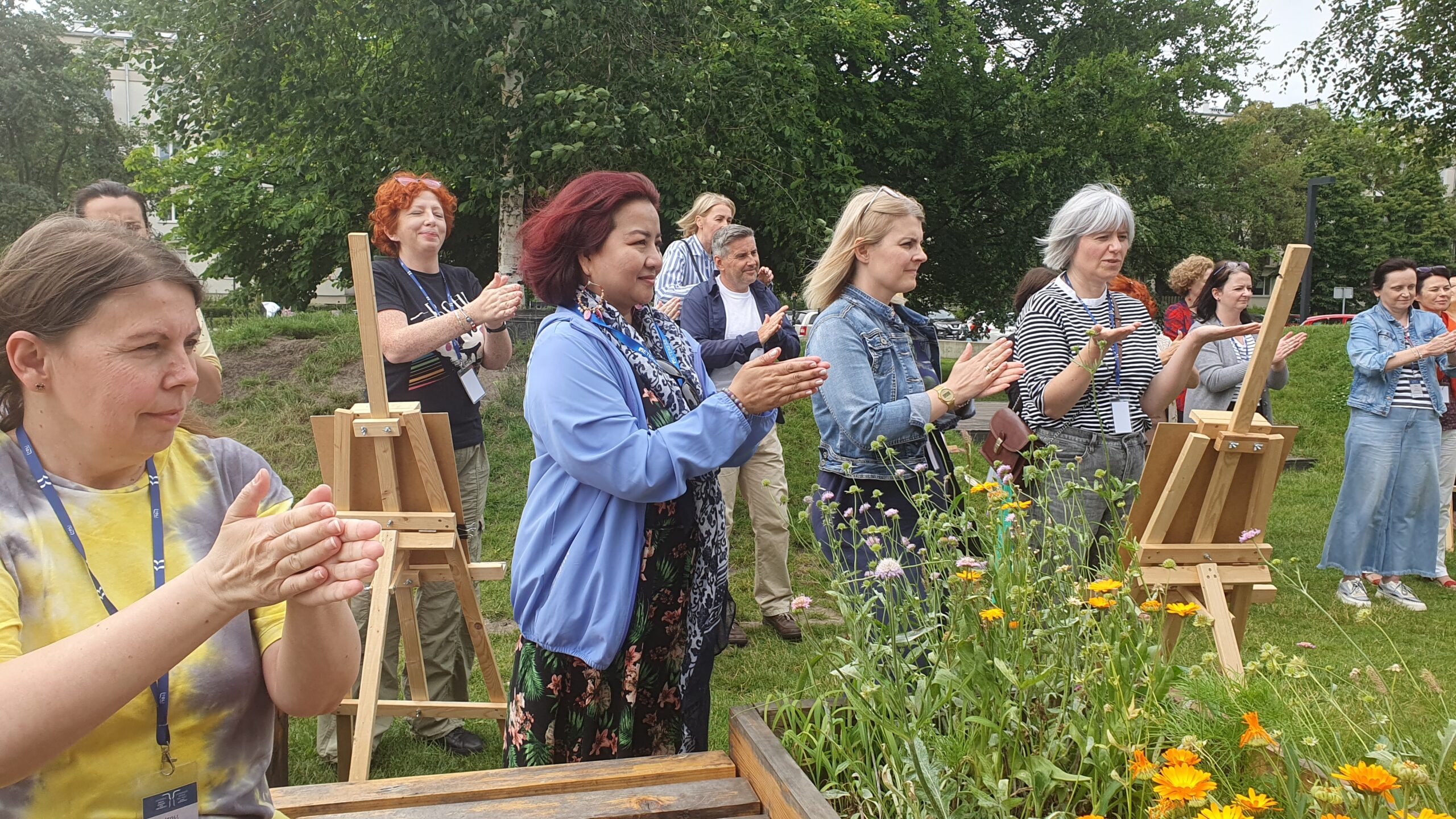Poland

Date: July 1-5, 2025
Location: Warsaw, Poland
Poland
Since 2018, TOLI has organized yearly Holocaust and human rights education seminars for teachers in Poland, in partnership with Big Picture Association and POLIN – Museum of the History of Polish Jews. TOLI’s Poland Seminar brings together 30-35 middle and high school teachers from across Poland to explore the country’s unique Holocaust history in Warsaw and Krakow. Participants learn about Jewish culture and history in Poland with guided tours of the POLIN museum and memorial sites, including Majdanek and Auschwitz. The seminar also includes visits to the Warsaw ghetto and Kazimierz in Krakow.
The participants learn from local and international experts on how to educate their students about these complex issues. Presentations also include an overview of the support available for educators teaching on these issues. Through an in-depth study of identity, stereotypes, and antisemitism, participants work together to develop activities to bring back to the classroom.
The objective of the seminar is to:
- Develop participants’ awareness of historical and current dialectical discussions concerning the Holocaust
- Further teachers’ understanding of the impact of stereotypes, prejudice, and individual, group, and societal discrimination
- Deepen teachers’ knowledge of Jewish life before and after the Holocaust
- Raise awareness about the prevalence of hate speech and discuss ways to address it at school
- Increase participants’ appreciation for innovative, student-centered teaching methods, including extra-curricular activities and partnerships between schools and other institutions and organizations
- Promote an interdisciplinary approach to teaching about the Holocaust and human rights
- Understand and counter Holocaust distortion.
Impact Grants
Graduates of the seminar have the opportunity to apply for an impact grant to develop projects related to Holocaust education and social justice. The grant consists of financial support and continuous mentorship throughout the school year. Every year, about 15 educators from Poland benefit from the TOLI Impact Grant Program.
Thank you to the Mostysser Family for their generous support of our Poland Seminar.
Last Year’s Seminar Updates:
On June 23, we launched the seventh seminar for teachers and educators on teaching about the Holocaust and human rights at Polin Museum. The theme of the seminar is the road in a broad sense, including as a road to a better world free of prejudice. The patron of this path is Abraham Joshua Heschel, so the training began with an introduction to the philosopher’s and theologian’s path. We also talked about identity, what defines it and what limits it. Defining our own identities and thinking about what we could give up proved to be very difficult emotionally. The next day Professor Stola, speaking about Jewish migrations in the 20th century, also emphasized the importance of not reducing people to a single identity. Those attending the seminar were given a tour of the core exhibition that highlighted themes related to migration. The temporary exhibition immersed them in the world of Opatów’s pre-war Jews through the eyes of Mayer Kirshenblatt. The painted memories became an inspiration for an open-air painting workshop on the Leśmian Meadow.
The seminar continues. We are using TOLI methodology to talk about the events of the past while reflecting on the present. A moving lecture by Dr Alicja Bartuś dealt with the functioning of modern repressive states using the example of labor camps in North Korea. We all left with a reflection on the importance of civic freedom. We walked the streets of Oświęcim with Aleksandra Bielska learning about the history of the Jewish community and the complex relationship between the city and the camp. Thanks to Prof. Slawomir Kapralski, we had a chance to go beyond the stereotypical understanding of Roma identity and emancipation. Today in Krakow with Dr. Krzysztof Szwajca we talked about the consequences of inheriting trauma. Participants will deepen their awareness of how difficult it is to extricate oneself from the circle of post-traumatic powerlessness and how socially necessary it is by reading Traumaland by Prof. Michal Bilewicz. A field lecture on the growing dilemmas of the reality of the ghetto and – more broadly – the Holocaust, issues of memory, non-memory and commemoration was given by Adam Musial. Oana Bajka conducted a workshop on upstanders, bystanders and collaborators. Together we considered how to strengthen attitudes of civil courage in various situations. Monika Marciniak from Bialystok talked about collective trauma and the difficult road to restoring the memory of the Jews of Bialystok.
The seminar is taking place in the framework of the project Combating Holocaust Denial and Distortion through Active Citizenship, Remembrance and Education, implemented by a consortium of organisations coordinated by the Intercultural Institute Timisoara, in partnership with TOLI – The Olga Lengyel Institute for Holocaust Studies and Human Rights (TOLI) Muzeum Historii Żydów Polskich POLIN and co-funded by the European Union and TOLI.
